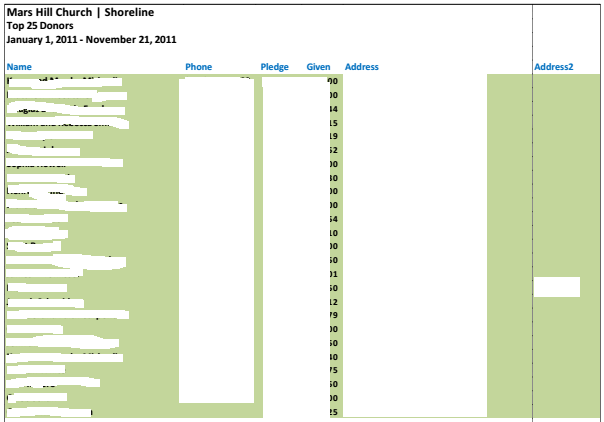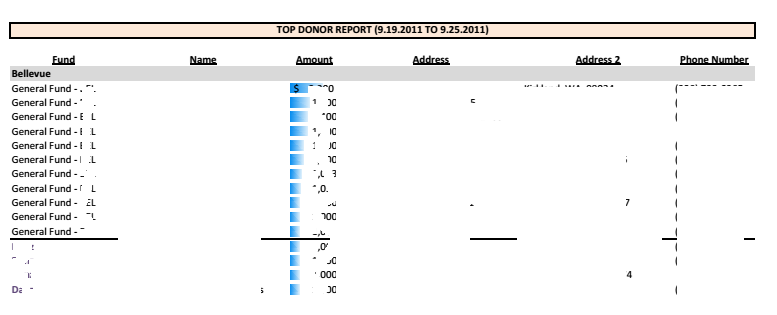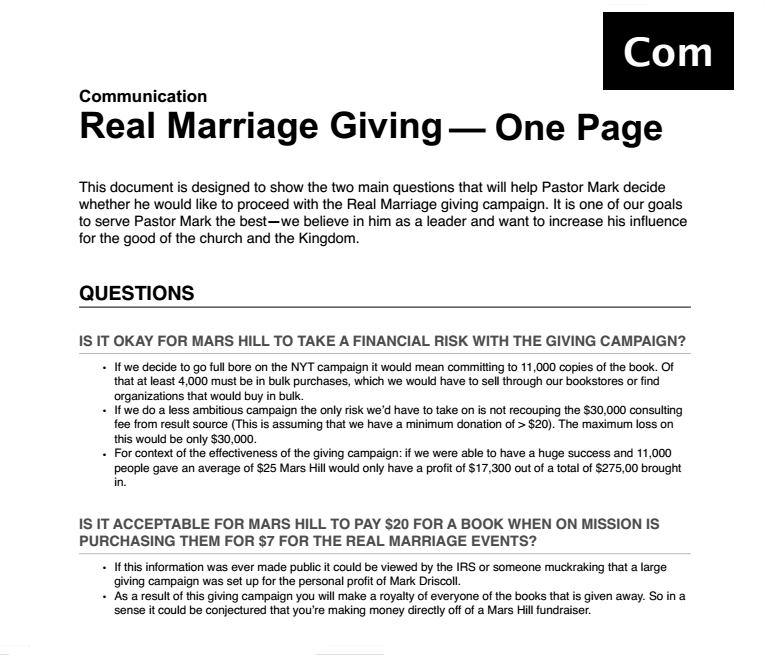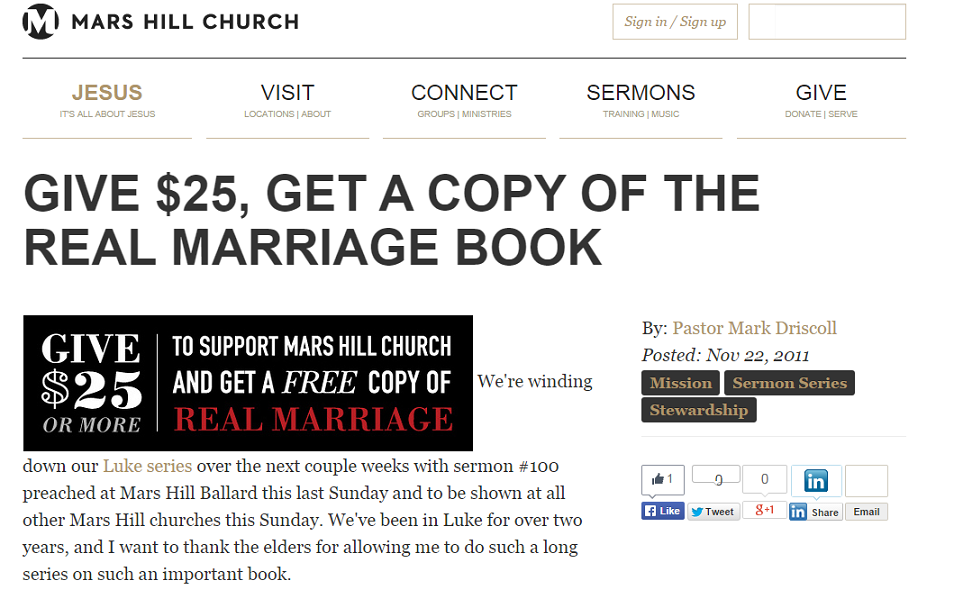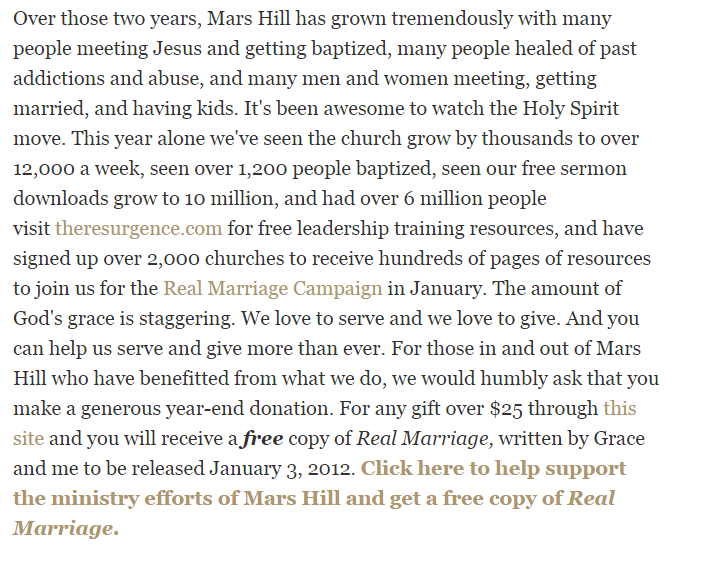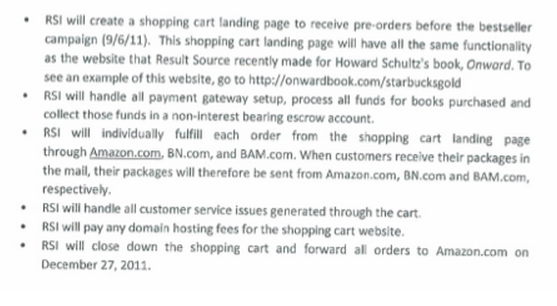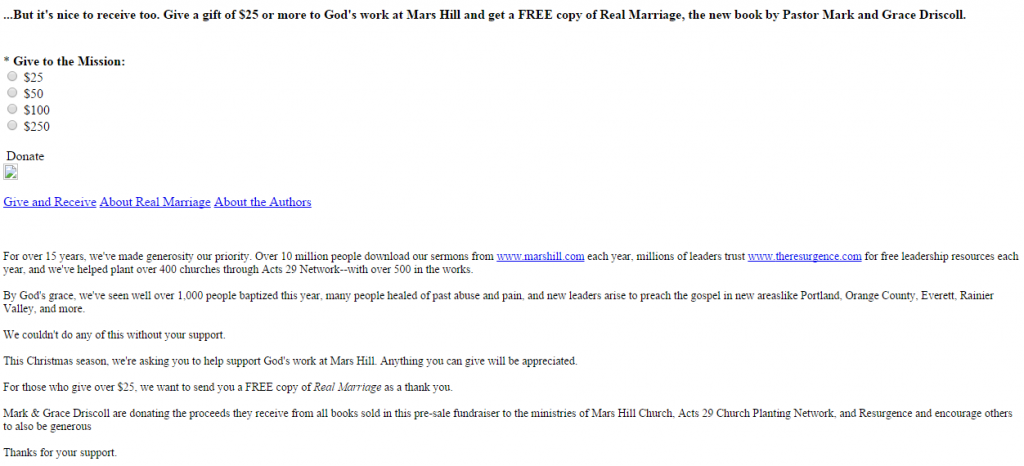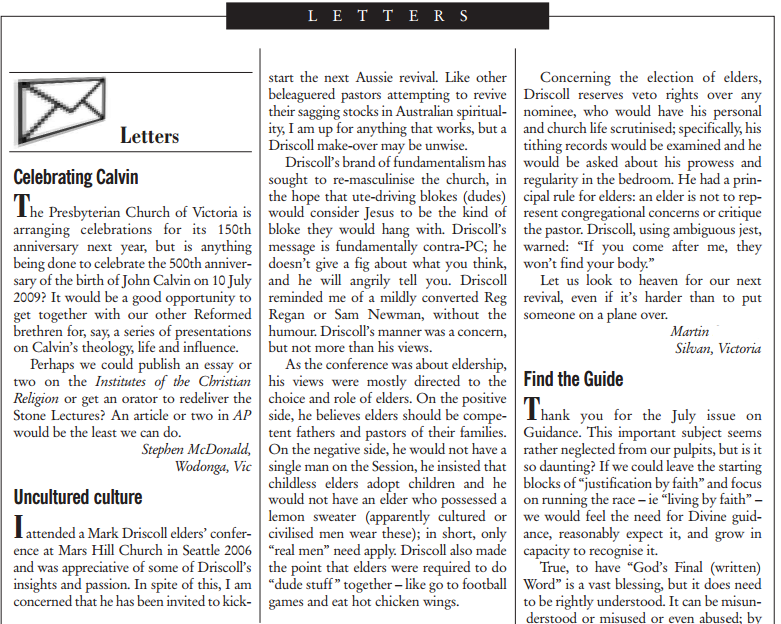In this video, Mark and Grace Driscoll acknowledge they made mistakes in ministry. What were those mistakes?
At 5:23 into the video, Driscoll makes revealing statements about his views of his elders. These opinions give insight into the changes in governance at Mars Hill since 2007. Watch and take note between 5:23 and 7:00 minutes.
[youtube]http://youtu.be/U9vbaq5cO20[/youtube]
Starting at around 5:37, Driscoll said:
…but I knew as a big personality and pretty intense so I wanted to be under authority, but I made a mistake of, how do I say this carefully; trying to be under the authority of my elders, but the truth is all my elders were new and young and green, and they would want to help, but they really didn’t know what they were talking about. And so what I should’ve had was a team of pastors outside of the church who were older and more seasoned who could, you know, help Grace and I put life together and also give me counsel on how to work on the church with the elders I had early on. They could work in the church but they couldn’t work on the church.
Shorter Mark Driscoll on why he made mistakes: Lord, its these elders you gave me.
Driscoll goes on to say that church planters shouldn’t believe that accountability will come from their first elder board. He wished he had older, seasoned pastors to guide him because sometimes the problems they needed to talk about were the elders. In jest, Driscoll said, “Ok, guys I want to talk about this hypothetical person I wanna kill” referring to his unnamed problematic elders.
Elsewhere Driscoll has said that Mars Hill Church was killing him due to stress. He claimed he had to make changes in governance in order to save his life and his marriage. Here we learn that Driscoll did not trust (agree with?) his elders and believed that being under their authority was a mistake. Since his elders were wrong and frustrating, he needed to go outside the church to find wiser people.
In light of these statements, the rationale behind the formation of the Board of Advisors and Accountability becomes clearer. However, there seems to be two messages here. The explicit message is that his elders were inexperienced and although they meant well, they were wrong about important matters. The other more subtle message is that his elders frustrated him because he was correct and they were wrong. They disagreed with Driscoll and so they became the problem. What Driscoll needed were outside people who knew what they were talking about. All of this assumes that Driscoll, himself young and green, knew what he was talking about.
In hindsight, Driscoll’s solution to his young and green elders has not worked out well. The Board of Advisors and Accountability now appears to be ineffective in keeping Driscoll and the church advised and accountable. However, one reason the BOAA may have faltered is due to the unwillingness of Driscoll and his colleagues to follow through on the purpose of the BOAA. According to former BOAA member Paul Tripp, the BOAA is incapable of being effective, saying
But it became clear to me that a distant, external accountability board can never work well because it isn’t a firsthand witness to the ongoing life and ministry of the church.
Such a board at best can provide financial accountability, but it will find it very difficult to provide the kind of hands-on spiritual direction and protection that every Christian pastor needs. Unwittingly what happens is that the external accountability board becomes an inadequate replacement for a biblically functioning internal elder board that is the way God designed his church to be lead and pastors to be guided and protected.
Everyone makes mistakes, but sometimes we are mistaken about what we call mistakes. Driscoll’s assessment of the situation is debatable. Did he make a mistake by throwing off the authority of his elder board and bringing outsiders in? One interpretation of the current situation at Mars Hill is that the cure has been worse than the disease. In hindsight, perhaps Driscoll misdiagnosed the disease. He thought the problem was the elders; another possibility is that he, also young and green, should have listened to his elders board.
Additional Information:
In light of this post, Wenatchee the Hatchet reviewed the video and provides much evidence that calls Driscoll’s narrative into question. WtH brings back other sermons where Driscoll described himself as being under the authority of elders in the early days. Watch the video again and then read WtH’s post; hard to bring the two together.
For more on the changes at Mars Hill which reverberate to the present, see this post.
